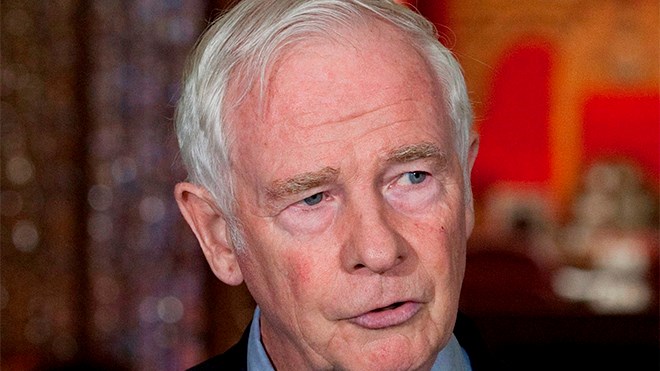With Prime Minister Justin Trudeau looking on, Governor General David Johnston delivered the relatively brief speech in the red Senate chamber, setting out the broad direction and goals for this session of Parliament.
The speech stuck with themes Trudeau promised during the October election campaign, including taking a more positive, less divisive approach to governing.
“Canada succeeds in large part because here, diverse perspectives and different opinions are celebrated, not silenced,” Johnston said. “Parliament shall be no exception.”
High in the list of commitments in the speech was the promised tax cut for middle-income Canadians.
“First and foremost, the government believes that all Canadians should have a real and fair chance to succeed,” Johnston said. “Central to that success is a strong and growing middle class. The government will, as an immediate priority, deliver a tax cut for the middle class. This is the fair thing to do, and the smart thing to do for Canada’s economy.”
The Governor General also committed the Liberals to bringing in the new Canada Child Benefit and to fulfilling promises to invest billions in infrastructure over the next three years.
“Recognizing that public investment is needed to create and support economic growth, job creation and economic prosperity, the government will make significant new investments in public transit, green infrastructure, and social infrastructure,” he said.
“And to give Canadians a more secure retirement, the government will work with the provinces and territories to enhance the Canada Pension Plan.”
He also reiterated Trudeau's pledge on electoral reform, promising to “take action to ensure that 2015 will be the last federal election conducted under the first-past-the-post voting system.
“To restore public trust and bring an end to partisanship, the government will follow through on its commitment to reform the Senate by creating a new, non-partisan, merit-based process to advise the prime minister on Senate appointments,” he said.
There will be more free votes in the House of Commons, Johnston said, and committees will be given stronger mandates. Partisan government advertising will end, as will the Conservative practice of presenting massive budget and other bills that contain so many elements, Canadians are often unaware of what is being passed before it's approve.
“The government will not ... interfere with the work of parliamentary officers; and it will not resort to devices like prorogation and omnibus bills to avoid scrutiny,” Johnston said.
Other highlights of the speech:
- A commitment to nation-to-nation relationships with First Nations, as well as an inquiry into murdered and missing indigenous women.
- More support for veterans and their families, as well as a review of the military with an eye on “building a leaner, more agile, better-equipped military.”
- A promise to introduce legislation that will provide greater support for survivors of domestic violence and sexual assault; that will get handguns and assault weapons off our streets; and that will legalize, regulate and restrict access to marijuana.
- The Liberals also promise to invest in clean technology, provide more support for companies seeking to export those technologies, and lead by example in their use.
